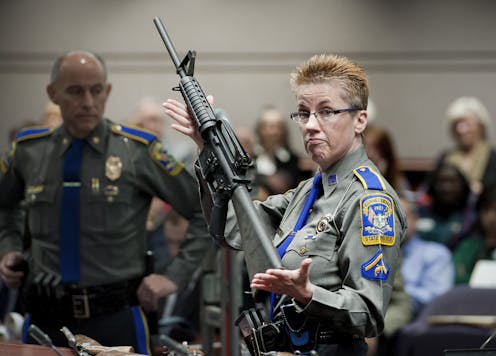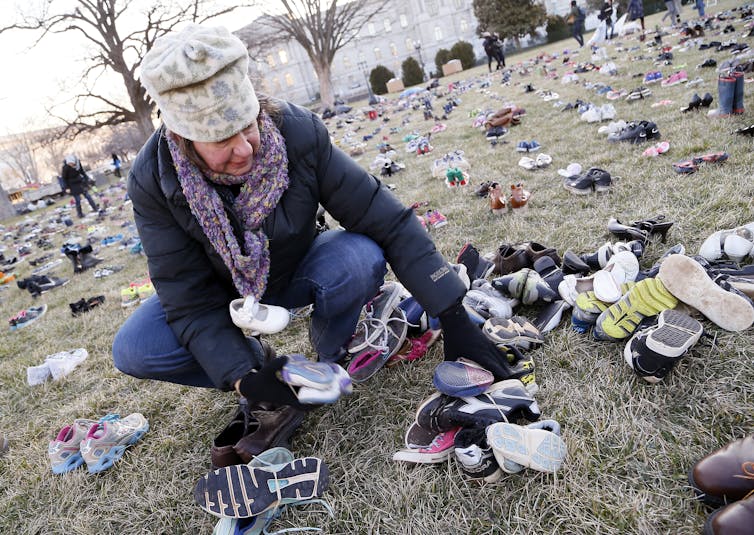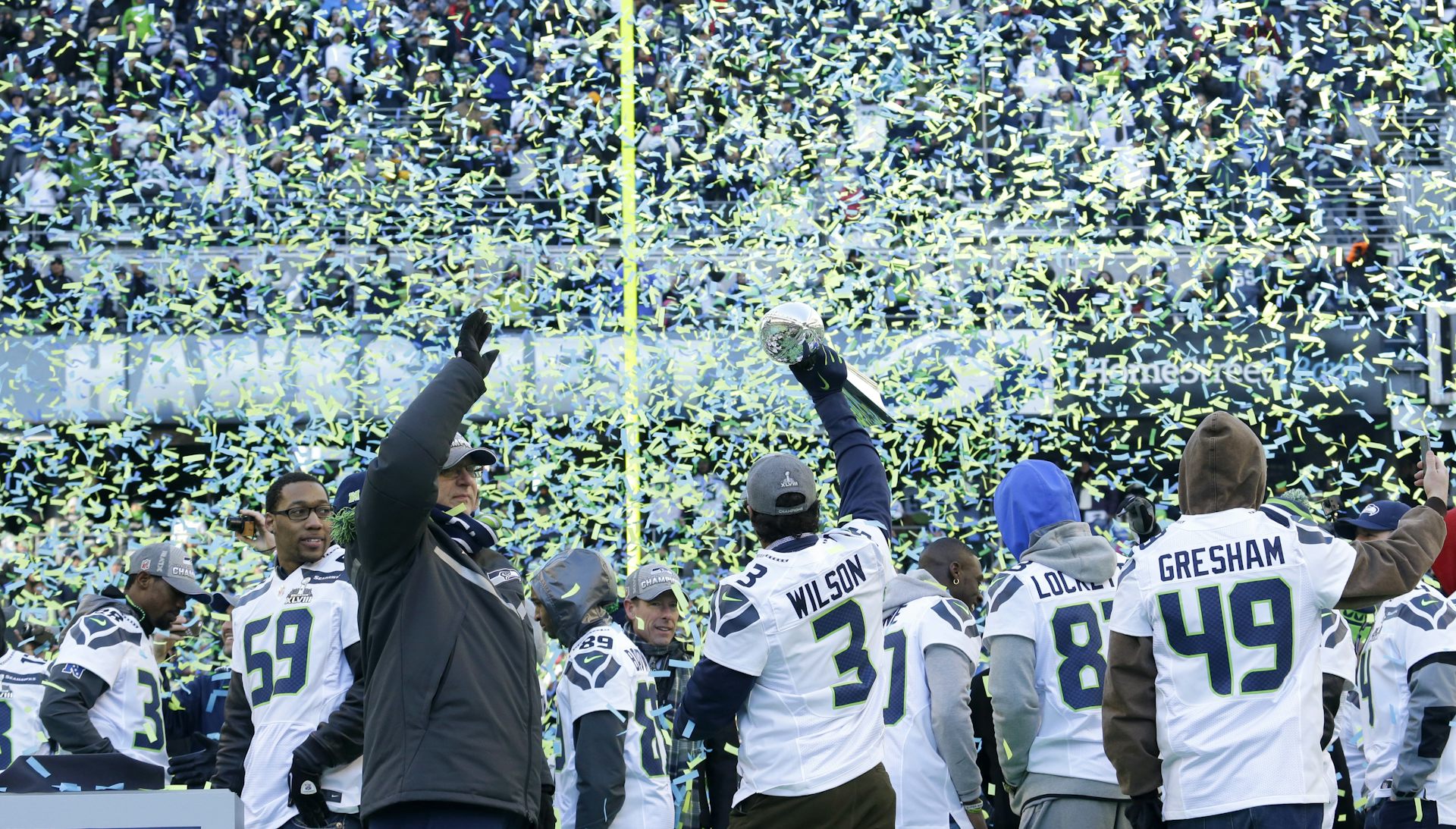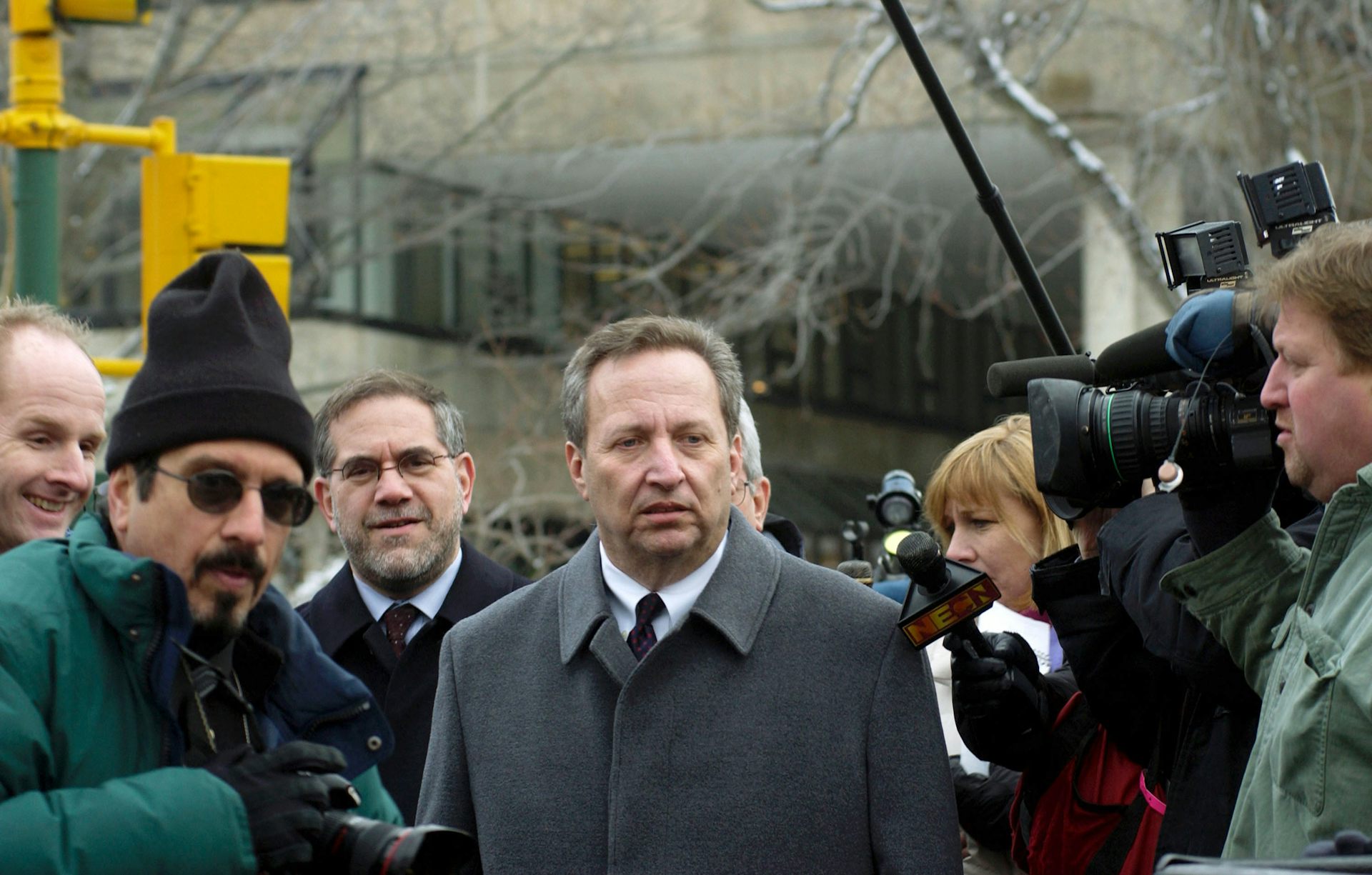Sandy Hook lawsuit court victory opens crack in gun maker immunity shield
The Connecticut Supreme Court ruled that the families of the Sandy Hook shooting victims could sue a gun maker, a decision that could open the floodgates to more lawsuits.

The Connecticut Supreme Court ruled on March 14 that families of the Sandy Hook Elementary mass shooting victims could proceed with a lawsuit against the companies that manufactured and sold the semiautomatic rifle used in the attack.
The ruling, which reversed a lower court’s decision, has the potential to unleash a flood of claims by gun violence victims against gun manufacturers – if it’s upheld by the U.S. Supreme Court, that is.
My research on the history of lawsuits against the gun industry has documented the failure of gun violence victims to hold gun manufacturers liable for legal marketing practices that many people consider irresponsible. The latest Sandy Hook decision could pave the way for gunmakers to finally be held responsible for them.
Interpreting ‘applicable’
A 2006 law called the Protection of Lawful Commerce in Arms Act grants gun manufacturers immunity from lawsuits that arise out of the criminal misuse of a weapon.
The Sandy Hook families argued that their lawsuit fell under an exception to this federal immunity. The exception allows gun violence victims to sue a manufacturer who “knowingly violated a state or federal statute applicable to the sale or marketing” of a firearm.
The families claimed that Remington Arms “marketed, advertised and promoted the Bushmaster XM15-E2S for civilians to use to carry out offensive, military style combat missions against their perceived enemies.” They said that this marketing constituted an unfair trade practice under Connecticut law, which they argued is a state statute “applicable” to the marketing of a firearm.
The Connecticut high court agreed and, importantly, interpreted the term “applicable” broadly. That is, the court said that a relevant statute only had to be “capable of being applied” to gun sales, not that the law needed be specifically about firearms, as other courts had held.

What’s next
It is this interpretation that could potentially unleash a flood of lawsuits across the country.
Since many states have unfair trade practices laws like Connecticut’s, it seems likely that gun violence victims will bring similar claims elsewhere. Victims are thus likely to allege that a gun manufacturer’s aggressive marketing of combat-style weapons violates a state statute – like an unfair trade practice law – that is applicable to the sale or marketing of a firearm.
The fate of the Sandy Hook lawsuit and any others that follow will depend on the outcome of an all-but-certain appeal to the U.S. Supreme Court. If the court rejects the Connecticut Supreme Court’s broad interpretation of the word “applicable” in the federal statue, that will restore the immunity from suit that gun makers have enjoyed for more than a decade.
However, if the top U.S. court adopts Connecticut’s broad interpretation, then the gun industry can expect to be the target of a great deal more litigation in the years to come.
Timothy D. Lytton has provided expert consulting services to law firms representing gun violence victims.
Read These Next
Drug company ads are easy to blame for misleading patients and raising costs, but research shows the
Officials and policymakers say direct-to-consumer drug advertising encourages patients to seek treatments…
How the Seattle Seahawks’ sale will score a touchdown for charity 8 years after Paul Allen’s death
Selling a sports team is much more complicated than selling assets found in a typical estate, such as…
Former Harvard president Summers’ soft landing after Epstein revelations is case study of economics’
Despite repeated calls for the university to revoke his tenure, the economist held onto his teaching…




